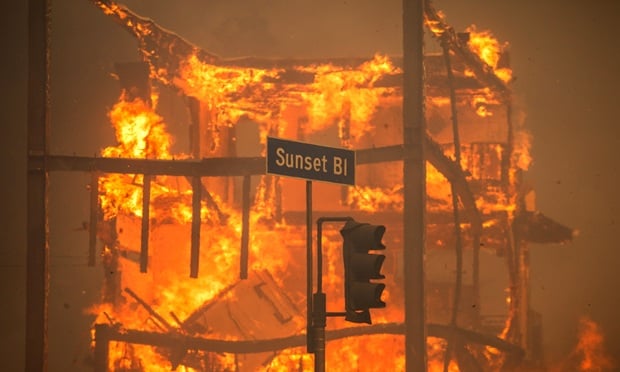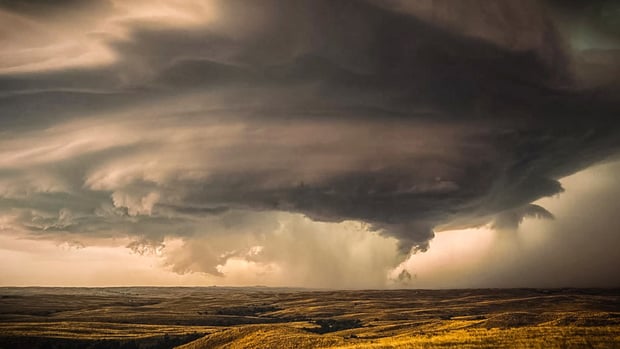(Bloomberg) -- More than 80 people in Dallas are being monitored for symptoms of Ebola after coming into contact with patient Thomas Eric Duncan or others who Duncan had met, health officials said.
The people have been asked to report to Texas health officials or the U.S. Centers for Disease Control and Prevention if they show signs of the deadly virus, Erikka Neroes, a spokeswoman for Dallas County Department of Health and Human Services, said by telephone. Early signs can include a high temperature or other flu-like symptoms.
Officials have also ordered four of Duncan’s family members to remain at home until at least Oct. 19 and not have any visitors to prevent any potential spread of the virus. So far, none of the people have shown symptoms, Neroes said.
Duncan had close contact with 12 to 18 people, officials have said, and public health workers have been tracking down anyone those people came in contact with. The goal is to identify people who could potentially become sick and contagious, and if they do, isolate them before they can infect others.
Duncan was sick for several days in Dallas before eventually being isolated at Texas Health Presbyterian Hospital Dallas on Sept. 28.
Two days before, he had shown up at the hospital feeling ill, according to information supplied by the hospital’s front desk. He was sent home from the emergency room with antibiotics even though he told a nurse he had recently been in Africa, hospital officials said yesterday.
Ambulance
When he came back it was in an ambulance, and he was confirmed as infected with Ebola and is in serious condition.
Some people in Dallas were nervous about the days Duncan had spent outside the hospital.
“We had a variety of responses from parents, as you might expect in a case like this,” Andre Riley, a Dallas Independent School District spokesman, said yesterday in an interview. “Some were very concerned about what is occurring and others just want to be informed.”
At least one of the exposed children attends Dan D. Rogers Elementary School in Dallas. At the school yesterday, four men in white, head-to-toe protective suits, identified by Riley as janitors, cleaned portable buildings that serve as classrooms. The group was among several teams disinfecting areas where the exposed students had recently been.
Protective Suits
As for the white suits, Riley said, “I’m sure they are taking extra precautions. Our people don’t normally wear body suits.”
Maria Landa, 39, has a 4-year-old son in pre-kindergarten at Dan D. Rogers school, about 3 miles from the hospital. She said she all but panicked when officials called her yesterday and said a student at the school had been exposed to the Ebola patient.
“They said, ‘There’s nothing to worry about’ and they didn’t let out early,” Landa said as she left the school yesterday afternoon. “They said they were sending more information home with the kids.”
Landa shrugged when asked if she has confidence in how health authorities are handing the case. “When you hear the man was in the hospital and they let him go, you don’t know,” she said. “I’m concerned.”
The patient was identified as Duncan by a person familiar with his care, who asked not to be named because the matter is private. His case is the first confirmed Ebola infection in the U.S.
Experimental Drug
Duncan isn’t getting the same experimental drug given to two American aid workers who were evacuated to the U.S. in August, said Josephus Weeks in Kannapolis, North Carolina, who said he was a family member of Duncan. Public records show Weeks lives in a house with Duncan’s sister, who was identified yesterday by the Associated Press.
The drug, called ZMapp, is an experimental treatment made by Mapp Biopharmaceutical Inc. The company has said it has run out of the medicine. American and European patients have been given the drug, Weeks said, asking why Duncan had not.
The U.S. Centers for Disease Control and Prevention and Texas doctors are discussing the use of further possible experimental treatments, CDC Director Thomas Frieden said at a Sept. 30 news conference. No decision has been made, he said. Meanwhile, the ambulance workers and other health-care professionals who treated the infected man in the Dallas area are being monitored, Edward Goodman, an epidemiologist at Texas Health Presbyterian, said at a news conference.
Short Drug Supply
Larry Zeitlin, president of San Diego-based Mapp, didn’t immediately respond to an e-mail inquiring when Mapp would have new stores of its antibody cocktail. Stephanie Yao, spokeswoman for the FDA, said requests for treatment access are considered confidential and she couldn’t say whether the Dallas hospital had requested Mapp’s drug.
Duncan arrived in Dallas after traveling from Monrovia, Liberia’s capital, through Brussels and then Washington before flying to Houston. The bulk of his trip was on United Airlines jets, the airline said.
“The director of the CDC has stated there is ‘zero risk of transmission’ on any flight on which the patient flew,” United, a unit of United Continental Holdings Inc., said in an e-mailed statement. “He was not symptomatic until several days after his trip and could not have been contagious on the dates he traveled.”
Airport Screening
Patients leaving Liberia’s capital Monrovia on international flights must wash their hands twice with chlorinated water before boarding, and their temperatures are taken at a security gate. They are not required to fill out a form about any possible contact with infected people.
“The Liberian government is concerned and regrets that an individual traveling from Liberia was diagnosed with Ebola after arrival in the U.S.,” Lewis Brown, Liberia’s information minister, said in a statement. “Currently there are stringent screening measures in place at the Roberts International Airport which we believe are preventing the disease from spreading via air travel.”
In the U.S., state, local and national officials have urged calm and said they are confident they can contain the situation in Dallas. The CDC has sent a team of nine to Dallas to track and monitor anyone who may have been in contact with Duncan.
The agency has advised hospitals to treat people returning from West Africa with flu-like symptoms as possible Ebola patients, with a national briefing on the disease coming during an Aug. 5 teleconference, according to the CDC website.
‘Bound to Happen’
“Any infectious disease is just a plane ride away in our society now,” Robert Glatter, an emergency physician at Lenox Hill Hospital in New York who isn’t involved in the Dallas case, said yesterday by phone. “It’s bound to happen, especially because the protocol to screen people at airports is not strict now.”
Public health officials have said Duncan had close contact with at least 12 to 18 people, including the school children. Five of them were close family members, said Christopher Perkins, medical director of the Dallas County Health and Human Services department. Adults will monitor themselves for symptoms of the virus, while health workers will help watch children, who aren’t going to school while under observation.
Observation Period
“We’re talking about 21 days of observation,” Perkins said yesterday at a press conference. “As far as the children, we’re talking about them not going to school. As far as the ongoing investigation, we’ll provide updates when we decide along with the CDC what’s the appropriate protocol. This is not a quarantine.”
So far none of the people who has been in contact with Duncan have shown symptoms or tested positive, said Neroes, the Dallas health department spokeswoman, said yesterday.
Texas and Dallas County officials yesterday delivered legally-binding orders to Duncan’s relatives to remain at home “out of an abundance of caution” until the incubation period for Ebola has passed, according to a statement from the Texas health department.
The current outbreak in Liberia, Sierra Leone and Guinea has infected 7,718 people, killing 3,338, the World Health Organization said yesterday. “There are few signs yet that the Ebola virus disease epidemic in West Africa is being brought under control,” the WHO said in its report.
No More
Michael Osterholm, director of the Center for Infectious Disease Research and Policy at the University of Minnesota, said it’s unlikely there will be any more people infected with Ebola in the U.S. as a result of the case, thanks to good infection control procedures here.
“There shouldn’t be any new infections from this point on,” Osterholm said. “We are going to shut this down.”
There is no approved cure for Ebola. Current treatment involves giving the patient supportive care such as intravenous fluids and trying to fight off other opportunistic infections that may develop.
Twelve other people in the U.S. were evaluated for suspected Ebola infection before Duncan, U.S. officials have said. All have been negative so far.
Ebola has left Africa before, but only under controlled conditions. Aid workers who have fallen ill in the current outbreak have been flown to the U.S., the U.K., Spain and France for treatment. A researcher who fell ill in 1994 in Ivory Coast was taken to Switzerland for care.
--With assistance from Shannon Pettypiece and Robert Langreth in New York, Michael Buteau and Michael Sasso in Atlanta, Ed Dufner, Thomas Black, Mary Schlangenstein and Darrell Preston in Dallas, Angela Greiling Keane in Washington, Chris Fournier in Ottawa, Elise Zoker in Johannesburg and Simeon Bennett in Geneva.
Want to continue reading?
Become a Free PropertyCasualty360 Digital Reader
Your access to unlimited PropertyCasualty360 content isn’t changing.
Once you are an ALM digital member, you’ll receive:
- Breaking insurance news and analysis, on-site and via our newsletters and custom alerts
- Weekly Insurance Speak podcast featuring exclusive interviews with industry leaders
- Educational webcasts, white papers, and ebooks from industry thought leaders
- Critical converage of the employee benefits and financial advisory markets on our other ALM sites, BenefitsPRO and ThinkAdvisor
Already have an account? Sign In Now
© 2025 ALM Global, LLC, All Rights Reserved. Request academic re-use from www.copyright.com. All other uses, submit a request to [email protected]. For more information visit Asset & Logo Licensing.








